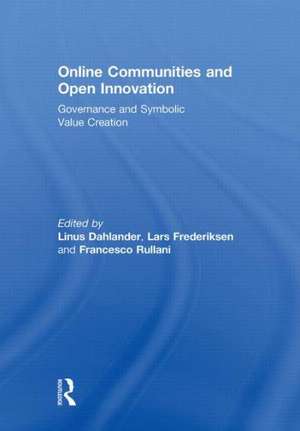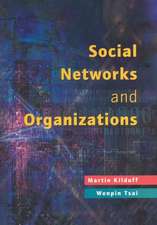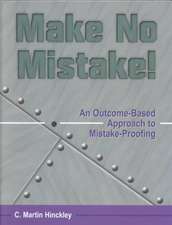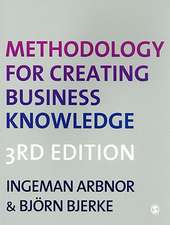Online Communities and Open Innovation: Governance and Symbolic Value Creation: Routledge Studies in Industry and Innovation
Editat de Linus Dahlander, Lars Frederiksen, Francesco Rullanien Limba Engleză Hardback – 4 feb 2011
Preț: 763.26 lei
Preț vechi: 1026.86 lei
-26% Nou
Puncte Express: 1145
Preț estimativ în valută:
146.04€ • 152.50$ • 120.60£
146.04€ • 152.50$ • 120.60£
Carte tipărită la comandă
Livrare economică 15-29 aprilie
Preluare comenzi: 021 569.72.76
Specificații
ISBN-13: 9780415617482
ISBN-10: 0415617480
Pagini: 128
Dimensiuni: 174 x 246 x 14 mm
Greutate: 0.4 kg
Ediția:1
Editura: Taylor & Francis
Colecția Routledge
Seria Routledge Studies in Industry and Innovation
Locul publicării:Oxford, United Kingdom
ISBN-10: 0415617480
Pagini: 128
Dimensiuni: 174 x 246 x 14 mm
Greutate: 0.4 kg
Ediția:1
Editura: Taylor & Francis
Colecția Routledge
Seria Routledge Studies in Industry and Innovation
Locul publicării:Oxford, United Kingdom
Public țintă
PostgraduateCuprins
1. Online Communities and Open Innovation: Governance and Symbolic Value Creation Linus Dahlander, Lars Frederiksen and Francesco Rullani
2. Of Hackers and Hairdressers: Modularity and the Organizational Economics of Open-source Collaboration Richard N. Langlois and Giampaolo Garzarelli
3. The Role of Participation Architecture in Growing Sponsored Open Source Communities Joel West and Siobha´n O’Mahony
4. Keep it Simple: A Companion for Simple Wikipedia? Matthijs den Besten and Jean-Michel Dalle
5. Communities of Consumption and Made in Italy Eleonora Di Maria and Vladi Finotto
6. Leveraging Lead User Knowledge in Software Development—The Case of Weblog Technology Stephan Kaiser and Gordon Mu¨ ller-Seitz
7. Getting Clear About Communities in Open Innovation Joel West and Karim R. Lakhani
2. Of Hackers and Hairdressers: Modularity and the Organizational Economics of Open-source Collaboration Richard N. Langlois and Giampaolo Garzarelli
3. The Role of Participation Architecture in Growing Sponsored Open Source Communities Joel West and Siobha´n O’Mahony
4. Keep it Simple: A Companion for Simple Wikipedia? Matthijs den Besten and Jean-Michel Dalle
5. Communities of Consumption and Made in Italy Eleonora Di Maria and Vladi Finotto
6. Leveraging Lead User Knowledge in Software Development—The Case of Weblog Technology Stephan Kaiser and Gordon Mu¨ ller-Seitz
7. Getting Clear About Communities in Open Innovation Joel West and Karim R. Lakhani
Notă biografică
Linus Dahlander is an Assistant Professor at European School of Management and Technology, Berlin, Germany. His research investigates how new ideas and innovations are developed in networks and communities. The research seeks to understand how these communities and networks unfold over time when individuals are distributed and autonomous – self-selecting tasks and collaboration partners.
Lars Frederiksen works at the Innovation Management Group at Department of Marketing and Statistics, at Aarhus School of Business and Social Sciences, Denmark. His research explores the ideas, activities and roles of individuals and teams in innovative projects, communities and organizations. He studies the development of knowledge creation, integration and transfer through social networks. Lars employs both qualitative and quantitative methodologies.
Francesco Rullani is Assistant Professor in Entrepreneurship and Management of Innovation at LUISS Guido Carli, Department of Economics and Business, Rome, Italy. His research focuses on production of knowledge by self-organizing groups of actors. He has explored these themes in the field of free/open source software, employing mainly quantitative techniques applied to large databases.
Lars Frederiksen works at the Innovation Management Group at Department of Marketing and Statistics, at Aarhus School of Business and Social Sciences, Denmark. His research explores the ideas, activities and roles of individuals and teams in innovative projects, communities and organizations. He studies the development of knowledge creation, integration and transfer through social networks. Lars employs both qualitative and quantitative methodologies.
Francesco Rullani is Assistant Professor in Entrepreneurship and Management of Innovation at LUISS Guido Carli, Department of Economics and Business, Rome, Italy. His research focuses on production of knowledge by self-organizing groups of actors. He has explored these themes in the field of free/open source software, employing mainly quantitative techniques applied to large databases.
Descriere
The book informs managers, policy makers, researchers and students of the most recent thinking of the intersection between online communities and firms. The book highlights how creation, coordination and appropriation of technological as well as symbolic value take place within different types of online communities as well as how firms can manage and benefit from these new and important external sources of knowledge. This book was published as a special issue of Industry and Innovation.















